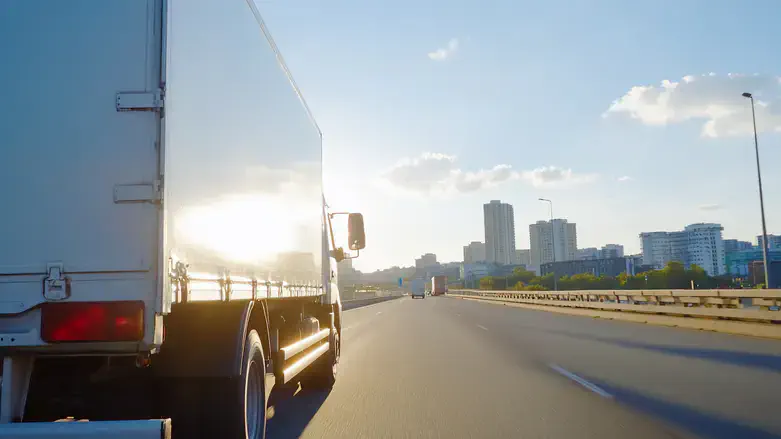
One accident can derail months of progress. A box truck sideswipes another vehicle during a tight turn. The damage? Thousands in repairs, a delayed shipment, and a liability claim that eats into your cash flow. For commercial drivers, this kind of risk is part of the job. But relying on basic coverage or trying to self-fund major expenses can leave your business exposed. A strong commercial auto insurance policy protects your finances and shows clients you’re reliable, prepared, and serious about what you do.
Understanding Everyday Road Risks
Running a trucking or transport business means dealing with unexpected hazards. Rush-hour traffic can lead to fender benders. Worn brakes might fail at a bad moment. Weather conditions might shift suddenly, causing a skid. You could also lose time if your vehicle breaks down in the wrong place, which could cost you a delivery contract.
High-value cargo adds another layer of pressure. If a breakdown means your load is late, a client might question your reliability. Fixing or replacing a damaged truck can also cut into your bottom line. The best approach is to carry a policy that handles these scenarios in a straightforward way.
Key Elements of Coverage
Commercial auto insurance differs from a personal auto policy because it covers higher stakes. Here are the main features to look for:
Liability Coverage
- Helps if you cause property damage or injuries in a crash.
- Can pay for repairs to another driver’s vehicle or medical bills.
Physical Damage
- Repairs or replaces your truck if it is damaged, whether by collisions, theft, fire, or hail.
- Often combines collision and comprehensive protection.
Uninsured or Underinsured Motorist
- Steps in if the other party cannot pay for damages.
- Covers repairs and medical costs for you or your driver.
Cargo Protection
- Keeps your freight safe from theft or road accidents.
- Especially important if you haul expensive products.
Trailer Interchange
- Covers trailers not owned by you that you still use or haul.
Not every transport business needs every option. A single-truck owner might focus on physical damage plus liability. Someone hauling rare cargo might add extra cargo coverage. The goal is a set of protections that matches your real operations.
When Expert Help Makes Sense
Interpreting insurance documents can be tough. Some policies exclude certain routes or cargo types, so a misunderstanding could lead to a denied claim.
Many business owners choose GIA Group LLC as their insurance agent because it focuses on the needs of the trucking industry. They offer fast certificates, round-the-clock access to documents, and avoid hidden fees or MVR chargebacks. For owner-operators and growing fleets alike, that kind of support makes day-to-day operations smoother and claims less stressful.
An experienced advisor can also reveal cost-saving ideas. Maybe you combine cargo and liability, or you install safety gear to lower premiums. Companies that invest in driver training or anti-theft devices sometimes find they pay less over time. These small improvements add up.
Common Mistakes to Avoid
Relying on Personal Auto Coverage
- Personal policies rarely cover business-related incidents.
- Commercial risks demand a commercial plan.
Choosing the Lowest Premium
- Cheap coverage might skip important protections.
- Balancing cost and adequate coverage is essential.
Skipping Policy Updates
- Adding new trucks changes your risk level.
- Let your agent know about any growth or new routes.
Neglecting Driver Histories
- Poor driving records push insurance costs higher.
- Screening and regular check-ins can help maintain better rates.
By avoiding these errors, you can sidestep big surprises and keep your business secure. It is wise to schedule policy reviews at least once a year to spot any changes that might affect your protection.
Building a Financial Foundation
Commercial auto coverage forms part of a bigger strategy. Regular maintenance and a contingency fund also matter. Without proper insurance, even a minor crash can hit hard. The Federal Motor Carrier Safety Administration (FMCSA) reports that a property-damage-only accident involving a large truck averages $46,765. If injuries are involved, the cost climbs to $383,168. A fatal crash may cost over $14.5 million.
Having the right coverage means you don’t have to absorb those losses out of pocket. If your truck breaks down or ends up in an accident, insurance helps you recover fast and stay on schedule. That keeps your income flowing. A balance of good insurance, vehicle care, and financial planning gives you room to grow without taking on too much risk.
Final Thoughts
Commercial auto insurance protects your trucks, your finances, and your reputation. Whether you run a single vehicle or manage a growing fleet, the right policy helps you deal with real-world risks like collisions, cargo losses, and breakdowns. A knowledgeable advisor can help you avoid gaps in coverage and make sure you are not paying for protections you do not need.
Delays, accidents, and claims happen in this business. What matters is how quickly you can respond. With proper coverage, you stay on the road, meet client expectations, and protect your income. That kind of stability keeps your business moving forward.
